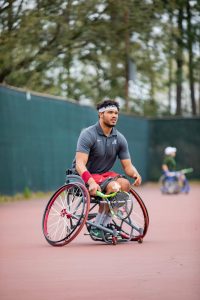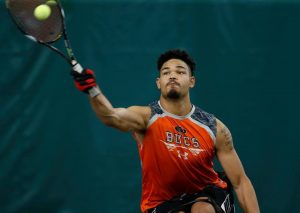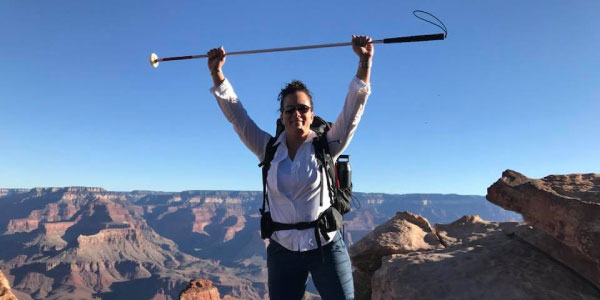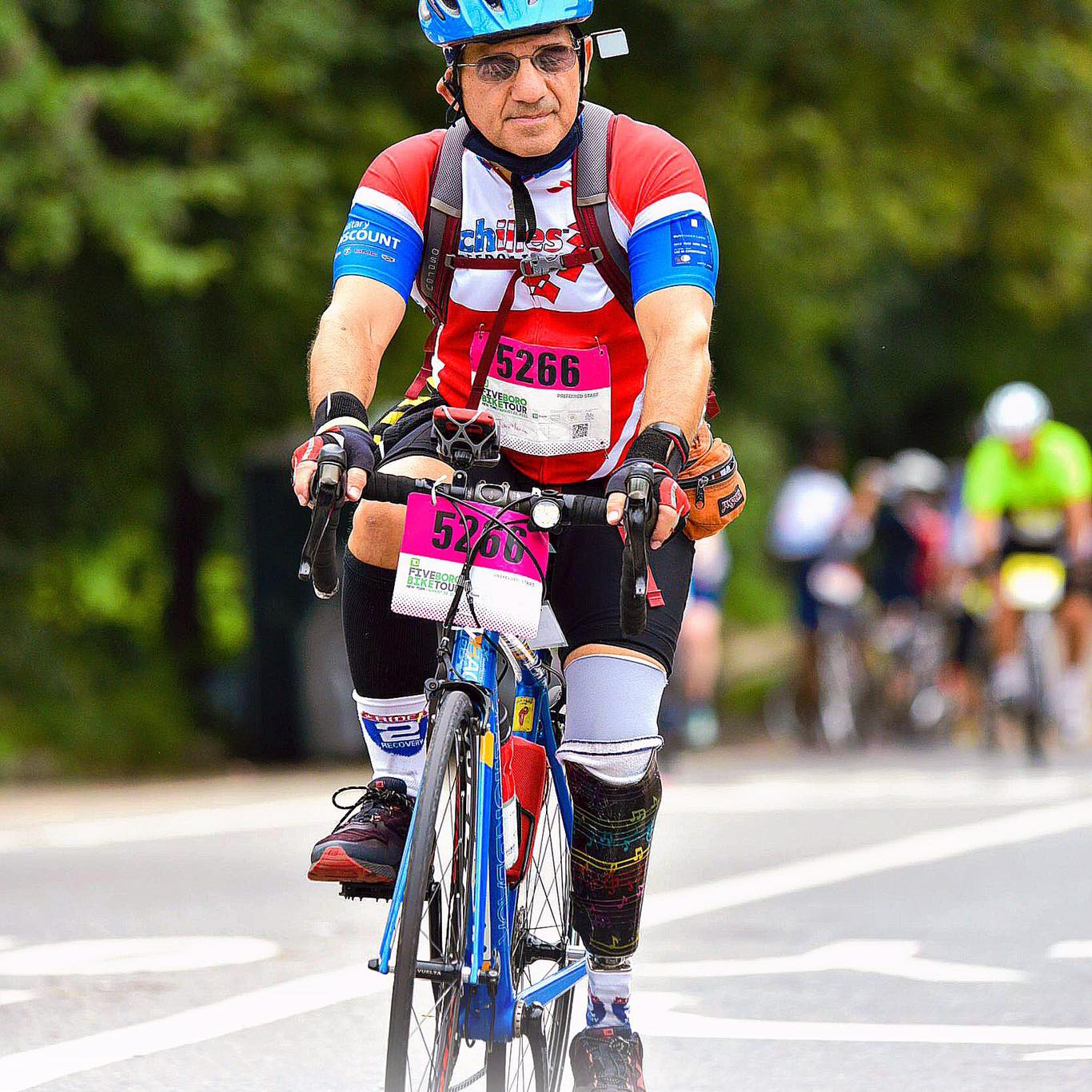
Jeremy Boyd
The first organized sport Jeremy Boyd played was baseball, when he was about 8 years old. “Sports have been a relatively consistent staple in my life,” Boyd said. He played baseball through the eighth grade because it was a whole other level in high school. “That was when I learned there are people that actually play these sports and want to play for a long time. My first taste of elite level competition was when I tried out for the high school baseball team.”
However, he had started playing football in the seventh grade. “One sport wasn’t really enough for me until I got to high school. Then that became my focus.” Boyd attended Hoover High School, which has been on the map for awhile in regards to their football program. “That is where I learned my work ethic in sports. I learned how to push yourself beyond what you think you can do and dedicate time and energy to building your craft.”
 Boyd rode football out until his freshman year in college. “Football and I decided to part ways,” he said. “I was going a different route in life and becoming more career oriented.” So that is where his pre injury sports career ended.
Boyd rode football out until his freshman year in college. “Football and I decided to part ways,” he said. “I was going a different route in life and becoming more career oriented.” So that is where his pre injury sports career ended.
On December 8, 2016 Boyd was shot in the side. “The bullet clipped my L3 vertebrae and left me with an incomplete spinal cord injury.” He has fairly complete control over the left side of his body, but loses sensation and function starting at the hip and tapering down to the knee. “After the knee I lose virtually all function and sensation.”
After spending about three weeks in the hospital, Boyd would move from Birmingham, Alabama up to Tuscaloosa to live with his brother’s family. While doing his rehabilitation, the staff would suggest participating in sports as part of that process. “They threw me in a basketball chair and within 3 seconds I was on the ground.” But nothing immediately clicked.
One day, two people rolled up to Boyd at a farmers market and asked if he played sports. “That was the day my life changed.” Those two individuals ended up being wheelchair tennis players Shelby Baron and Lauren Haneke-Hopps, who ultimately became Boyd’s teammates. They invited hit to give the sport a try.
It took him a couple weeks to warm up to the idea. “When you first get into a wheelchair, it is a whole new world. I was still nervous about meeting new people and not comfortable with being in a realm.
 But as soon as Boyd hit the tennis court for the first time at that community clinic, he was in love. “I couldn’t get enough of it. It gave me an outlet to vent the frustration that I had. Obviously, when you spend your whole life able-bodied and then you are not, that is a big change…tennis did a big thing to help save my life and get me on a healthy track and making me want to do more with my life than just sitting around.”
But as soon as Boyd hit the tennis court for the first time at that community clinic, he was in love. “I couldn’t get enough of it. It gave me an outlet to vent the frustration that I had. Obviously, when you spend your whole life able-bodied and then you are not, that is a big change…tennis did a big thing to help save my life and get me on a healthy track and making me want to do more with my life than just sitting around.”
So it was around April 2017 that he started playing wheelchair tennis. “It has been wheels burning, wheels turning ever since.”
“That opened up a whole new world of sports to me. It made me realize that I could still compete at a high level even though I had mobility issues.”
One of the reasons Boyd likes the sport is because of the variability of it. “Every ball is going to be different. Every point is going to be different. Every match is different. You have to be so locked in because the margin of error is so small.”
Boyd plays in the Men’s A division right now, the highest level. “It is getting to the point where it (the game) is more strategy as opposed to being flat out better than somebody. I liken it to chess, where I was playing checkers before. Some higher level players are like ‘you’re still playing checkers buddy.’ I’ve picked up the learning manual to start playing chess in my game.”
Now Boyd is focused on outthinking his opponent. “That is what is starting to drive me now. Training my mind and not just my body. That is the next chapter of my career and I am really excited about it.”
He has basic expectations that he has set for himself. “Those expectations create frustration… I’m my own worst critic.”
But at the University of Alabama, he is fortunate to have great coaching and sports staff around him. The program has won a couple championships since Boyd has been there, and just won the collegiate wheelchair national championship in April. “As long as I am willing to do the work and grind it out, the sky’s the limit.”
“I don’t lose very well. I do everything I can to not lose.”
So when it comes to training, Boyd suggests that you have to be patient with yourself and with your teammates. It is about being flexible and being able to adjust if something is not working. “You prepare the best you can and let the game come to you. I focus on what I can control versus being controlled by what is happening.”
Workouts at the university are typically three days a week. “Our strength and conditioning coach is intense, he wears us out.” In addition, they put the hours in on the court with four team practices and one individual practice. The practices vary. Some days are focused on drills and some days they are focused on grinding it out, hitting tons of forehands, tons of backhands, and tons of serves. “Tennis is about reps, reps, reps.” Other days are more match-oriented where the athletes on the team play each other. “You still have to get that game feel.”
According to Boyd, chair skills also don’t get enough attention. “I have been beat by people who don’t play tennis because they have way better chair skills.”
The University of Alabama has quite a facility for its adaptive sports program. “We are very fortunate here,” Boyd said. To the best of my knowledge, there is not another adaptive program that has a completely dedicated space for them. Brent Hardin and Margaret Strand commonly state that they want us to get the same experience than any other athlete would get on campus.”
But the athletes still have to put in the work. “It’s not given to you, you gotta grind for it. I love that word… you just gotta keep on grinding even when its hard. Grinding is about removing. You are losing things… shaving it off. I like to think it is a refining process. That’s all we do. Constantly trying to refining our game.”
Competing in the Paralympics is definitely a goal for Boyd. “I’m hoping to be in the conversation for Paris. And if not by then, I will be there for the next one. I’ve got work to do, but I’m putting it in. It is a matter of how bad do I want it?”
When it comes to disability, Boyd doesn’t accept the limitations that others put on him. “I’m not defining myself by how people treat me or what people think I can do, I don’t measure myself by that. As a black man, I know what it’s like to not be accepted. Don’t live by what people expect of someone in a wheelchair or someone with a disability.
I also check people when they say ‘you are such an inspiration.’ Why? You can do this to.”
Boyd is now in his senior in college, majoring in African American Studies. “I am entertaining the idea of getting my PHD and becoming a professor,” he said. “My mother was a teacher and I swore I would never teach. But the more I realize the role some my professors have had in my development and the way I see the world, I want to be able to do that for others.”
You can find Jeremy on Facebook or follow him on Instagram at @jointchiefsofstaff. You can also check out alabamaadaptiveathletics.com or follow alabamaadaptiveathletics on Facebook as well.



